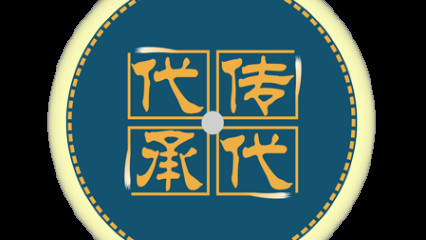
Production Planning and Control课程:前往报名学习
Do you know why planning is necessary in production? What control measures can we apply to ensure the quality, cost and delivery time of products, and how to apply these means accurately according to the complex and changing scenarios? In the course of production planning and control, we will explain the planning and control methods of enterprise production process from different perspectives, and teach you how to achieve efficient and high-quality production according to the different needs of enterprises.
开设学校:哈尔滨工业大学;学科:工学、
Do you know why planning is necessary in production? What control measures can we apply to ensure the quality, cost and delivery time of products, and how to apply these means accurately according to the complex and changing scenarios? In the course of production planning and control, we will explain the planning and control methods of enterprise production process from different perspectives, and teach you how to achieve efficient and high-quality production according to the different needs of enterprises.
-Ch1_1 Let us start with covid_19
-Ch1_2 Introduction to operation planning
-Ch1_3 Introduction to operation control and capacity planning
-Ch1_5 Introduction to scheduling
-Ch1_9 General framework of PPC
-Ch1 Exercises
-ch2_4 Hierarchical production and capacity planning
-ch2_6 Cost-volume or breakeven analysis
-ch2_7 Strategic capacity planning
-ch2_8 The experience curve and capacity flexibility & planning
-ch2_9 Capacity using overall factors and capacity requirement planning
-Ch2 Exercises
-ch3_2 Automation types and flexible manufacturing systems
-ch3_3 Basic layout types and product layout
-ch3_5 Comparison of product and process layout
-ch3_6 Fixed position layout, combination layout and cellular layout
-ch3_7 Production & assembly line and line balancing
-ch3_8 Features of line balancing
-ch3_10 Designing process layout
-ch3_11 Measures of effectiveness and information requirement
-ch3_12 Criteria for determining process layout
-Ch3 Exercises
-CH4_1 Aggregate Production Planning
-Ch4_2 Information Needed and Output of Production Plan
-Ch4_3 Aggregate Planning Strategy
-Ch4_5 Example of Aggregate Planning - 1
-CH4_6 Example of Aggregate Planning - 2
-Ch4 Exericses
-Ch5_2 Marketing and operations
-Ch5_5 Gross Demand and Projected Available Balance
-Ch5_6 Safety Stock and Compatiblity of MPS
-Ch5 Exercises
-Ch6_1 Independent and Dependent Demand
-Ch6_2 Example for Types of Demand
-Ch6_3 Master Production Schedule
-Ch6 Exercises
-Ch7_2 Inventory Control Objectives and Inventory Cost
-Ch7_3 Terminology of Inventory
-Ch7_4 ABC Classification System
-Ch7_5 Inventory Hide Problems
-Ch7_6 Economic Order Quantity Assumptions
-Ch7_7 Basic Fixed-Order Quantity Model - 1
-Ch7_8 Basic Fixed-Order Quantity Model - 2
-CH7_10 Fixed-Order Quantity Models Assumptions
-Ch7_11 Continous Review Systems
-Ch7_12 Periodic Review Systems
-Ch7 Exercises
-Ch8_1 Scheduling by Process Type
-Ch8_2 Shop Floor Control and Loading
-Ch8_4 Job Shop Scheduling Terminology
-Ch8_5 Sequencing and Sequencing Rules
-Ch8_6 Guidelines for Selecting a Sequencing Rule
-Ch8_7 Sequencing Jobs Through Multi-Machines
-Ch8_9 Case Study: AGVs Scheduling
-Ch8 Exercises
-Ch9_2 Failure Related Concepts
-Ch9_3 Maintenance Related Topics
-Ch9 Exercises
闫纪红教授是哈尔滨工业大学机电工程学院副院长,哈尔滨工业大学海外引进人才。现任国家级高端装备制造虚拟仿真实验教学中心主任、工信部高端装备制造研究型教学创新团队负责人、国家机械学科组虚拟仿真实验平台专家委员会副主任委员、中国机械工程学会生产系统专委会副主任委员、中国机械行业卓越工程师教育联盟智能制造专业委员会常委、黑龙江省机械工程学会工业工程专业委员会主任委员。长期担任一线教学任务和教学建设工作,主持教育部首批新工科研究与实践项目1项,教育部双语示范课程1门,发表教学研究论文20余篇,主持多项国家、省部级重点教育教学课题。 闫纪红教授研究领域为工业互联网与大数据制造,先后主持国家自然科学基金4项、国家重点研发计划“智能机器人”专项子课题、国防基础科研计划项目、数控重大专项子项目、航天科技集团第八研究院和第五研究院项目、总装预研项目、航天支撑项目、中国人民解放军xxx部队研究项目等国家部委项目以及深圳市腾讯计算机系统有限公司、东风日产大连分公司项目、哈尔滨汽轮机集团项目、HITACHI燃气轮机项目等企业项目共计20余项,参与“973”项目、欧盟EPSRC项目等的研究工作。发表论文150余篇,其中ESI高被引论文2篇,论文累计他引1600余次,主编出版英文专著1部(独立作者,John Wiley & Sons Inc.,2015)、主编中文教材2部。牵头制定“智能制造系统架构”——智能特征维度国家标准。 课程负责人2001-2005在美国威斯康星大学、宾夕法尼亚州立大学留学,在威斯康星大学期间,作为主讲教师,讲授Advanced Quality Control(《高级质量控制》,50学时,研究生(硕士、博士); Operations Research《运筹分析》,60学时,生高年级/研究生混选课)两门课程。 2005年作为哈工大“海外引进人才”回国工作,一直双语主讲本科课程《生产计划与控制》,获批教育部双语示范课程(2010);主讲研究生学位课《可靠性与智能维护》(双语)。 全英文主讲两门留学生研究生课程《Production and Operations Management》、《Reliability and Intelligent Maintenance》。 课程负责人作为独立作者出版全英文专著《Machinery Prognostics and Prognosis Oriented Maintenance Management》(John-Wiley Press,2015) 课程负责人多次组织国际会议并做大会报告,目前担任国外期刊编委、客座编辑等职务。



